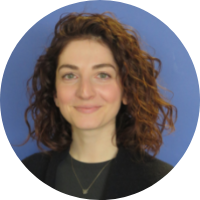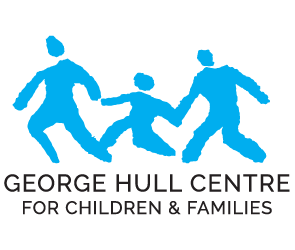Contact Us 416-622-8833
A Trauma Lens to Speech-Language Pathology Practice (Level 1)
In this training you will learn foundational information about trauma, its impact, and the connection to speech, language, and communication skills and development. You will learn about trauma-informed care and how to apply it to speech-language pathology practice, as well as the application of trauma-responsive strategies. And in the last session, you’ll focus on how to talk to families about trauma, including typical scenarios you likely encounter and things you can say. Please note: the content has been developed within the context of practice within Canada, and there may be differences (e.g., with legislation and practice guidelines) if you practice elsewhere. You may still take the training, but please be aware of this.
Previous training participants report that this training helped them:




Training Dates
Tuesday February 4, 11, and 18, 2025 (Zoom)
Time: 12:30pm – 4:00pm EST (Toronto time)
Cost: $295 (+Eventbrite fee)
Groups of 10+ receive a 15% discount. (Choose “group” ticket in Eventbrite.)
Please plan for a small amount of time between sessions to do important work relevant to the course, including reflecting about clients/practice and exploring what mental health services are available for your clients, locally to them. Session recordings will be available for three months post live sessions, however we highly recommend planning to attend all three sessions live, to participate in discussions and practice activities. This training is not available to attend as a recorded-only option.
Session Details
Session 1: Theoretical Foundations of Trauma-Informed Speech-Language Pathology Practice
Learning Goals Session 1 – SLP Practitioners will leave Session 1 of this training:
- understanding the definition of trauma, the neurobiology of trauma and various types of trauma
- with a strong foundation regarding trauma’s impact on child development, long-term health and wellbeing, and the importance of the child and caregiver relationship and attachment within the topic of trauma
- with knowledge regarding how trauma is related to communication skills and development and the research demonstrating this connection
- with an understanding of the importance of trauma and attachment disorders as risk factors for communication impairment, and communication impairment as risk factors for trauma and attachment disorders
- with an enhanced ability to identify signs of potential trauma exposure and identify risk and protective factors in their client’s lives
- beginning to confidently see the value and relevance of a trauma lens to speech-language pathology practice
Session 2: Trauma-Informed Care in SLP Practice
Learning Goals Session 2 – SLP Practitioners will leave Session 2 of this training:
- with an understanding of the principles of trauma-informed care and how they can be applied to individual practice, and within programs, organizations, and systems
- with a foundational understanding of polyvagal theory (from Dr. Dan Segal), and the importance of the window of tolerance
- with an explanation and demonstration of strategies and practices that can be implemented in SLP practice to increase a felt sense of safety for children and their caregivers
- with the confidence to begin applying the strategies and practices in client interactions
- with insight into their own dysregulation and supportive strategies and practices (or the start of identifying supportive strategies and practices)
- able to see their involvement with a family more broadly than just speech and language assessment and intervention
Session 3: Having the Conversation & Putting Learning into Practice
Learning Goals Session 3 – SLP Practitioners will leave Session 3 of this training:
- with an understanding of the social determinants of health and their relationship to development (via risk and protection)
- with an understanding of the importance of racism as trauma, race-related stress, cultural expressions of trauma, and how these concepts relate to their work
- with increased confidence in their ability to have sensitive and vulnerable conversations with families, both in asking about potential trauma exposure indications and responding to what families share
- with examples of what to say and how to respond in various situations
- with recommendations to support them in handling child protection concerns that arise in the future
- having discussed collaboration with mental health professionals and a trauma lens to the various domains of speech-language pathology practice
- having practiced how to explain trauma within their scope of practice and advocate for their involvement in the care of children who have experienced trauma and attachment disruption
The Institute will also be running a Trauma Lens in Speech-Language Pathology Practice Level 2 Training.
The Level 2 training will further support and deepen attendees’ understanding and application of trauma-responsive care in SLP practice, introduce universal trauma screening, further explore collaborative care with mental health professionals, and provide additional opportunities for discussion and clinical support.
The dates for Level 2 have not yet been set – if you would like to know when the training will run, please click here to sign up for our newsletter. However if you know that you would like to attend this training please add your name to the waitlist (that will help give us an idea of how soon we should schedule it!). Thank you so much for your interest!
Facilitators

Chiara Frigeni, MA, PhD, MEd, RP, is a Trainer, Clinician and Consultant for the Institute of Childhood Trauma and Attachment at the George Hull Centre for Children & Families. Through the Institute, Chiara delivers training on developmental trauma and trauma-responsive care for professionals working with children and youth across different sectors.
As a clinician, Chiara is currently focusing on trauma treatment primarily through the Sensory Motor Arousal Regulation Treatment (SMART) model. Beside SMART (currently in the Implementation Level course), Chiara is trained in Sensorimotor Psychotherapy (SP; Level 1 and 2), Eye Movement Desensitization and Reprocessing (EMDR; Level 1 and 2, and Child Specialist training), Trauma-Focused Cognitive Behavioural Therapy (TF-CBT), CBT for Generalized Anxiety Disorder (GAD), Dialectical Behaviour Therapy (DBT), Motivational Interviewing (MI), Solution-Focused Brief Therapy (SFBT), and Narrative Therapy. Chiara’s commitment to working with young people in the public sector stems from a strong belief in early and effective interventions for mental health and meaningful living that are accessible for all. Chiara considers herself privileged for continuing to learn with young people, families, and talented colleagues. It truly takes a village to grow and harness the healing power of belonging.

Anna Rupert, MHSc, MSc, Reg. CASLPO, is a speech-language pathologist, health and social care manager, researcher, educator, and consultant in Toronto. Anna currently works as the Manager of Research and Strategic Priorities at the George Hull Centre Institute of Childhood Trauma and Attachment and was previously the Centre’s Manager of Preschool Speech and Language Services. Anna holds master’s degrees in Speech-Language Pathology and International Health Policy from the University of Toronto and the London School of Economics, respectively. She is currently enrolled in the Doctor of Public Health (DrPH) program at the University of Toronto’s Dalla Lana School of Public Health and holds status as Assistant Professor in the University’s Speech-Language Pathology department. Anna’s research and consulting has focused on the inclusion of rehabilitation in global health systems, health system and service planning, and the relationship between child and family mental health, trauma, and communication skills and development. Through her career, Anna has worked with a wide variety of clinical populations, in many different systems and practice settings. All of her work has been fueled by the belief that communication is central to who we are and at the core of the most important and protective factor in our lives – our relationships.
Location: Zoom
Open to: Speech-language pathologists (also Speech and Language Assistants/Communicative Disorders Assistants, knowing there will be some focus on assessment)
Cost: $295.00 CAD
Groups of 10+ receive a 15% discount. (Choose “group” ticket in Eventbrite.)
Please plan for a small amount of time between sessions to do important work relevant to the course, including reflecting about clients/practice and exploring what mental health services are available for your clients, locally to them. Session recordings will be available for three months post live sessions, however we highly recommend planning to attend all three sessions live, to participate in discussions and practice activities. This training is not available to attend as a recorded-only option.
Questions? Email institutetraining@georgehull.on.ca

